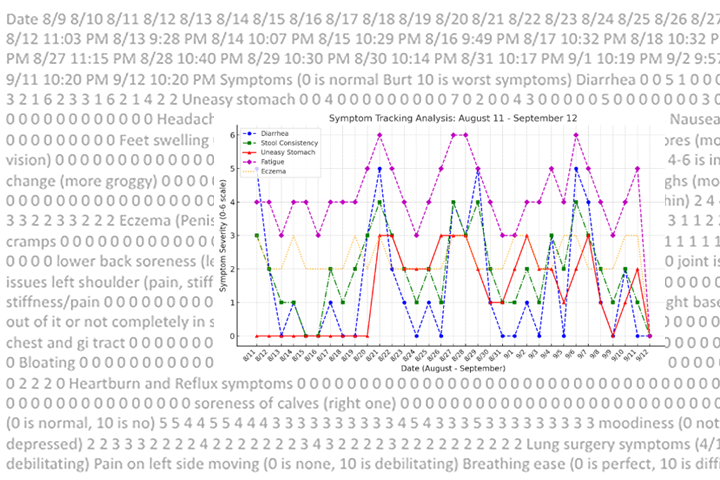Pancreatic Cancer and Drug Interactions: What You Need to Know

Every medical condition has its own challenges when it comes to drug interactions, and pancreatic cancer is no exception.
The most common chemotherapy drugs for pancreatic cancer are gemcitabine, Abraxane (nab-paclitaxel), and FOLFIRINOX‑—a drug cocktail that includes fluorouracil, irinotecan, oxaliplatin, and leucovorin, or folinic acid. However, some treatment regimens may include capecitabine, irinotecan on its own, and a few other options.
“In general, the chemotherapy drugs most commonly used in pancreatic cancer have few interactions,” says Trevor Christ, PharmD, BCOP, a clinical pharmacy specialist at Rush University Medical Center in Chicago. “That’s because researchers have spent a lot of time and effort studying the doses of the drugs and their behavior when taken with other chemotherapy drugs.”
According to Christ, patients benefit from the combination of good data on the drugs and the experience of an oncologist who knows how to adjust the dose to patients’ individual needs.
Biggest Drug Interaction Culprits: Blood Thinners and OTC Products
Overall, the one drug class most likely to interact with chemotherapy medications for pancreatic cancer is blood thinners. Warfarin (Coumadin is one well-known brand but there are others) is famous for having numerous drug interactions. However, the oncology community and overall healthcare system alike have moved away from using warfarin in recent years, replacing it with newer blood thinners. The new blood thinners tend to have fewer drug interactions, but they still have a few key interactions, such as with antifungal medications.
Aside from blood thinners, the most important drug interaction concerns with pancreatic cancer stem from the use of over-the-counter (OTC) drugs and dietary supplements. That’s why it’s important to have an up-to-date list of all your medications on hand at all times. Keep it in your purse, your wallet, or on your phone for easy access. The list should have all the medications you’re on, including those you’ve stopped or use as needed, how often you take them, and any dose changes. Not only does this habit help you keep track of your medications, but it makes your doctor’s and pharmacist’s jobs easier. It also helps you become more involved in your care.
But this is just one part of the way to avoid drug interactions.
Multiple Pharmacies, Online Drug Interaction Checkers Can Spell Trouble
“One major pitfall to note is that drug interactions and overlapping treatments often happen when patients use more than one pharmacy,” Christ explains. “Using multiple pharmacies makes it more difficult to know your entire medication regimen.”
Christ’s recommendation? Try to use the same pharmacy to fill all your prescriptions as much as you can.
Here’s why: The pharmacy team can be alerted for drug interactions based on your full medication list. However, it’s not always possible to fill your medications at just one pharmacy because of agreements your insurance company may have with specialty pharmacies.
Also, while the internet makes a good deal of information available at our fingertips, it’s important to understand that not all the drug information out there is reliable or accurate. For example, online drug interaction checkers are not always helpful because they sometimes flag things that aren’t clinically relevant.
That said, it isn’t a bad idea to enter your medications into an online drug database, then print out the results or carry the screenshots to your doctor. That way, he or she can weigh the risks versus the benefits. The important thing to remember here is to let your doctor or pharmacist review the drug interactions the online checker revealed before you go into panic mode. Chances are some of the interactions highlighted will have little to no effect on your treatment.
Regardless of whether you use online drug interaction checkers, you should always discuss your supplements with your doctor.
Not All Dietary Supplements Are Created Equal
When it comes to vetting dietary supplements for quality and effectiveness, reviews are often mixed. However, that’s not always the case. In fact, many dietary supplements are well-studied. Also, some herbs that may not have as much data have been used for hundreds or even thousands of years by healthcare practitioners in certain countries.
Common examples include China and India—two countries that use herbal supplements to treat many conditions. And even though some of these supplements may not have been thoroughly studied in the US and Europe or the studies may not align with American standards, that does not mean that these products are ineffective or poorly understood. However, the research on these products tends to be lacking when it comes to information on drug interactions and how the body processes and gets rid of those medications.
Dietary supplements also come with some unique pitfalls that can make them tricky to use. For example, unlike prescription and OTC medications, the Food and Drug Administration does not evaluate these products for safety or effectiveness. This leaves users to rely on their best judgment or seek the help of a qualified healthcare professional.
But the confusion doesn’t stop there.
For example, the label may be misleading as to the amount of an ingredient or even its presence in the product. While there are definitely some ethical natural products companies out there, there have been reports of some companies using cheaper herbal products than what they report on the label. This also leads to problems with the recommended dosing not being consistent with what the capsules or liquid actually contain. All these factors make it hard to know if the product you’re taking contains exactly what the label describes—or if it will be effective.
Read Your Prescription Information
In addition to these tips, one very important thing most patients fail to do is review the patient handouts you get from your pharmacy. Sure, they are daunting and tedious, but they contain important information about high-risk drugs along with specific tips on what signs and symptoms to watch out for.
Your best bet to make sure you’re in the clear when it comes to medications and dietary supplements that could potentially interfere with your pancreatic cancer treatment? Try to be upfront with your medical team by sharing what over-the-counter medications and supplements you’re taking. And while keeping a list of these products is great, even better is to bring the containers with the products into your doctor’s appointment.
“Bringing in the physical bottles of your dietary supplements makes it easier for your healthcare team to identify nuances to the labeling or hidden ingredients that might affect your treatment plan,” Christ notes.
Now that you have a better idea of what to look out for, you’ll be more likely to keep drug interactions at bay.


